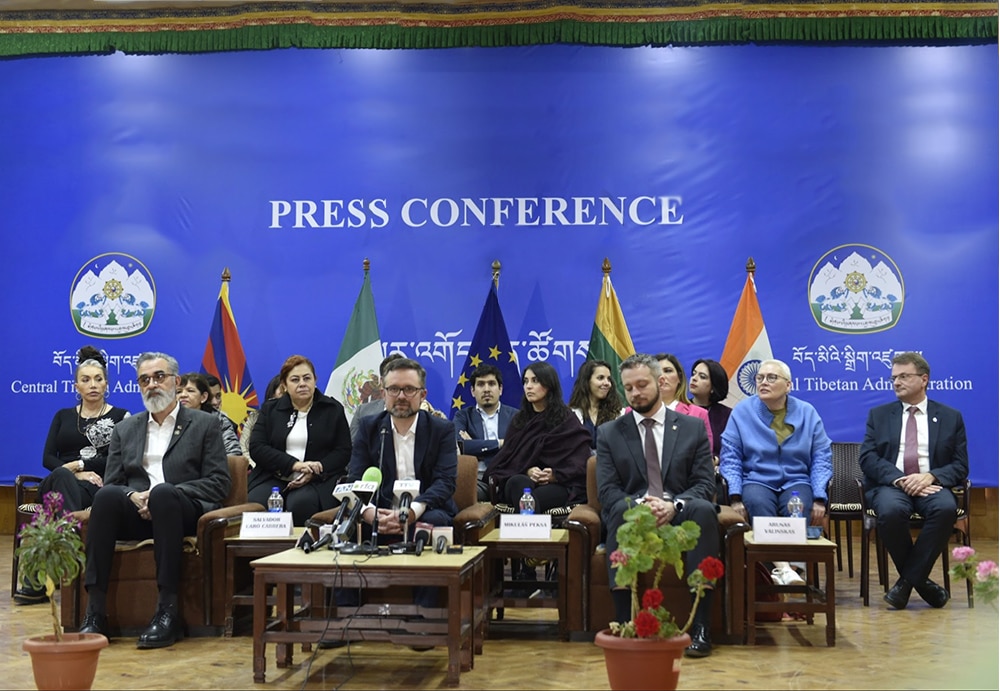The UN Children’s Fund (UNICEF) said millions of children are at risk amid cholera outbreaks in Malawi and Mozambique. Both countries face flooding and damage caused by the cyclone, leading to death, displacement, and the devastation of infrastructure and social services. The after-effects have crippled access to health and other basic services.
Risks are rising
One week after cyclone Freddy made landfall for a second time in Mozambique, risks are rising.
“We are now facing a very real risk of a rapidly accelerating cholera outbreak in Mozambique, a disease which is particularly dangerous for young children, especially those who are malnourished,” said Maria Luisa Fornara, UNICEF Representative to the country.
“UNICEF is working closely with the Government to urgently restore access to health, water, hygiene, and sanitation interventions to areas hit by the cyclone, and to prevent and treat cholera, but additional support is needed to meet the rapidly growing needs of children and families.”
Cholera cases quadruple
Thanks to preparation efforts by the Government of Mozambique, the number of deaths and people displaced by the cyclone appears to have been lower than for past cyclones of similar magnitude, UNICEF said.
Still, reported cholera cases have almost quadrupled – to almost 10,700 – since early February and more than 2,300 cases have been reported in Mozambique in the past week alone, the agency said.
Even prior to the cyclone, Malawi and Mozambique were among the countries most seriously affected by the cholera outbreak that has, in 2023 alone, resulted in more than 68,000 cases across 11 countries in the eastern and southern Africa region, the agency reported.
The UN Refugee Agency (UNHCR) has also issued an emergency appeal.
Malawi: growing death toll
UN Emergency Relief Coordinator Martin Griffiths released $5.5 million from the Central Emergency Response Fund (CERF) to assist cyclone-affected people in Malawi, as the devastating toll of floods and mudslides in the country’s southern region continues to rise.
UNICEF estimated that 4.8 million children are in humanitarian need.
Visiting flood-ravaged communities on 16 March, UN Resident Coordinator for Malawi, Rebecca Adda-Dontoh pledged UN support.
“The destruction and suffering that I witnessed in southern Malawi is the human face of the global climate crisis,” she said. “The people I met with—many of whom have lost their homes and loved ones—have done nothing to cause this crisis. We, as the United Nations, stand in full solidarity with the people of Malawi at this tragic time and we call on the international community to do the same.”
Broad ongoing efforts
Ongoing efforts funded by the CERF grant are addressing water, sanitation, and hygiene needs, shelter, vital non-food items, food, healthcare and the prevention of gender-based violence and child protection risks, she said.
“People are traumatized, and many have lost their homes, their belongings and their livelihoods,” Ms. Adda-Dontoh said. “In support of the Government-led response, through this CERF grant, we will aim to assist those who have been hardest-hit with life-saving and life-sustaining assistance.”
Malawi: facts and figures
The UN Office of Humanitarian Affairs (OCHA) has been tracking developments in Malawi in the wake of tropical cyclone Freddy.
- As of 18 March, nearly 363,000 people are displaced and sheltering in 505 camps across flood-affected areas.
- Authorities report on Saturday the death toll has risen to 447, with at least 282 people still missing.
- Some 75,000 hectares of cropland has been flooded, just as farmers were about to harvest the only crop of the year
- With more air assets available, UN efforts are underway to reach locations that have been cut-off by road since 12 March.
- Protection is a top response priority, given the heightened risks—including trauma, gender-based violence, child separation and trafficking—caused by the storm and associated displacement.













